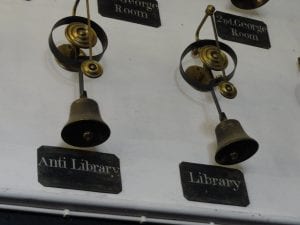The Pro-Vice-Provost’s View
By Paul Ayris, on 30 August 2017
The Library as a leader in cultural change across UCL
As we start a new academic year, I want to lay out some of the tasks that I have been asked to take on as Pro-Vice-Provost in UCL Library Services. These are objectives which are additional to those in the Library Strategy and to my role as head of UCL Library Services. The theme of all these objectives is ‘The Library as leader across the institution and beyond’.
Open Science
Open Science is the process by which ‘Open’ approaches to undertaking research, education and outreach are embedded in the daily work of academic and academic support staff. I have been asked to lead on a number of policy developments: revision of the UCL Research Data Policy and construction of a new UCL Bibliometrics Policy. I look forward to working with Library colleagues, particularly with those involved in open access, research data management, bibliometrics, academic liaison and public engagement/outreach across UCL.
I have also been asked to study the reporting of trials data (especially clinical trials) and, particularly, negative results. In conventional publishing, it would be unusual to report negative findings, but the underlying data may well be of importance to further research. So ‘Open’ approaches encourage the publication of negative results. I look forward to working with colleagues in UCL Press and those involved in academic liaison to take this forward. And, finally, the Library has been asked to lead on the organisation of a half-day Open Science Workshop for UCL in Term 2.
Collections and Culture
In terms of Collections and Culture, UCL hopes to continue discussions in the University of London regarding collaborative activity over Rare Books, Manuscripts and Archives.
I will be pressing ahead with these discussions. I also hope to work with colleagues in UCL Culture to identify further modes of collaboration and joint working. Of course, in terms of digital collecting the Library has one of the best digital library offerings of any university in the UK. We will continue to develop this, with a particular emphasis on e-book offerings. In 2016/17, ReadingLists@UCL achieved a remarkable target – 65% of all courses present in Portico had an online Reading List. This is a great achievement, but of course going forwards we want to do even better.
Open Access publishing
In UCL Press, we have the first open access University Press in the UK. We now want to develop the Press’s offering and we plan to do this in two ways. First, we want to re-invent the concept of a journal in the digital age, and in 2017/18 we will be developing an Open journals platform to allow UCL academics and others to construct their own peer reviewed journals. Second, we want to re-invent the textbook for an Open, digital age. In this regard, we have already initiated a call for UCL textbooks and we hope to build on the submissions to create a new mode of delivery for textbook materials. We also intend to further develop our links and collaborative working with the UCL IOE Press.
UK Scholarly Communications Licence
And finally, I have been asked to lead in UCL on consideration of the UK Scholarly Communications Licence (UKSCL). Indeed, I chair the national UKSCL Steering Group.
Via this licence, if adopted, each staff member would grant to UCL a non-exclusive, irrevocable, worldwide licence to make manuscripts of his or her scholarly articles publicly available under the terms of a Creative Commons Attribution Non-Commercial v4 (CC BY NC) licence. The benefits of adopting this licence are significant, the main ones being that
- academics submitting to REF 2021 can more easily comply with REF’s Open Access requirements
- a complete record of the full-text of academics’ publications is available
- research outputs can be used more easily in taught course programmes
The licence is based on a similar development at Harvard University and Princeton University has recently adopted a similar position. Discussions with publishers about the implementation of the licence are ongoing. I look forward to working with our copyright and open access teams in the Library as well as with all colleagues engaged in academic liaison to take this debate to academic colleagues.
The role of Pro-Vice-Provost in the Library is a recognition of the immense contribution that the whole Library makes to the corporate life of UCL in offering leadership and secure learning environments and services. The areas outlined above are ones on which I will be concentrating in the coming months, alongside the day-to-day running of the family of libraries in UCL Library Services. I look forward to many interactions with colleagues as we take this ambitious agenda forward.
Paul Ayris
Pro-Vice-Provost (UCL Library Services)
Leave a Reply
You must be logged in to post a comment.
 Close
Close



